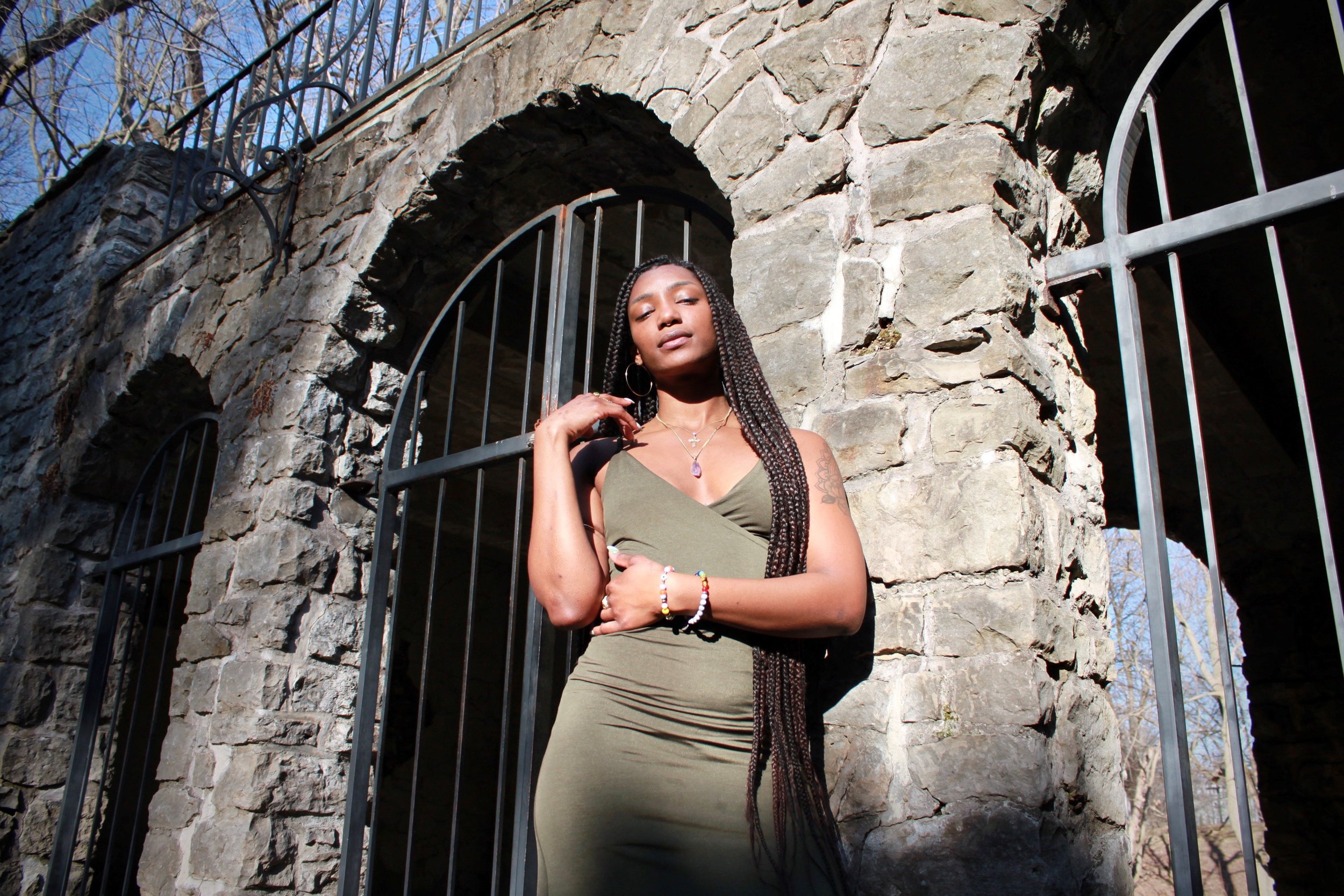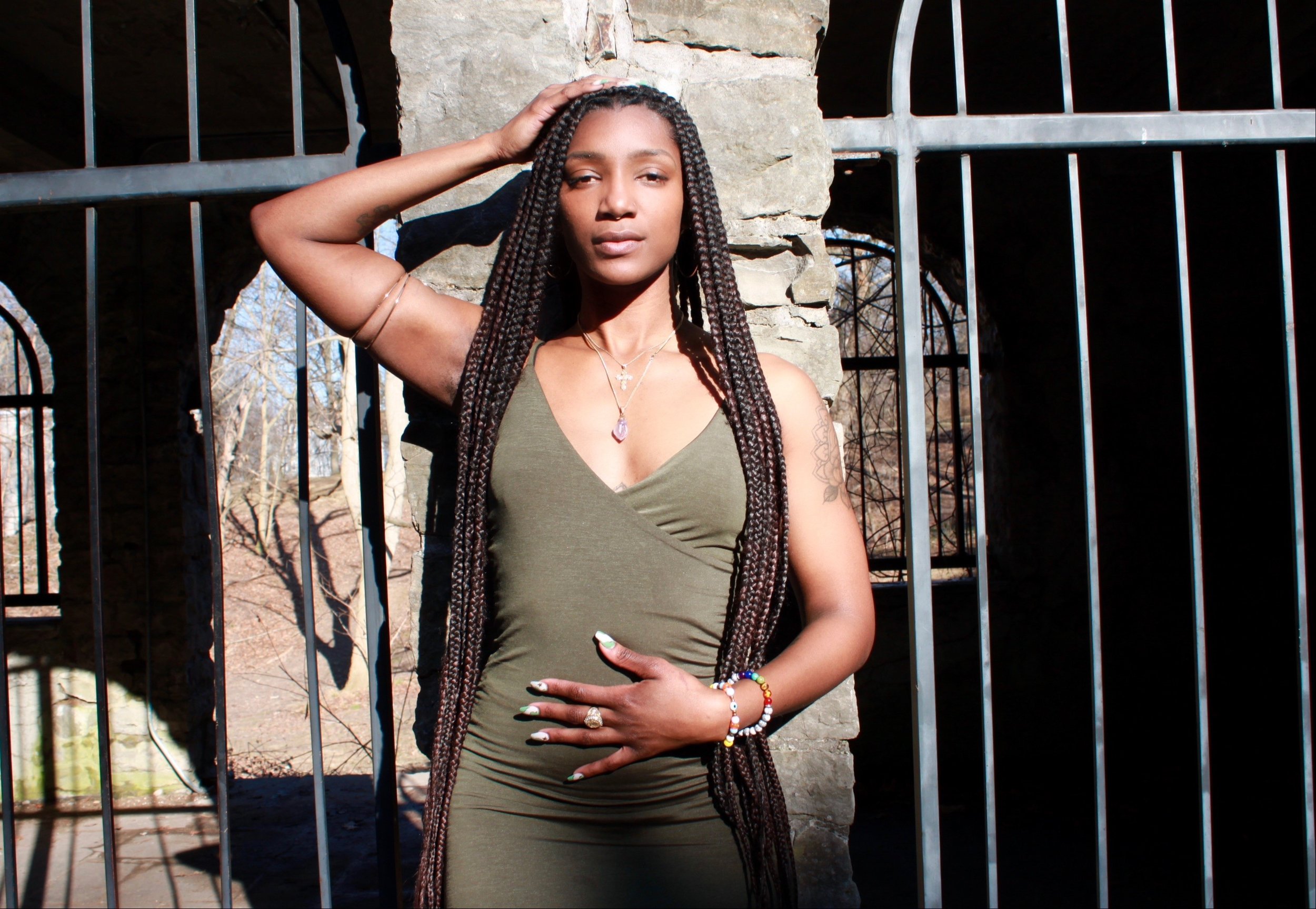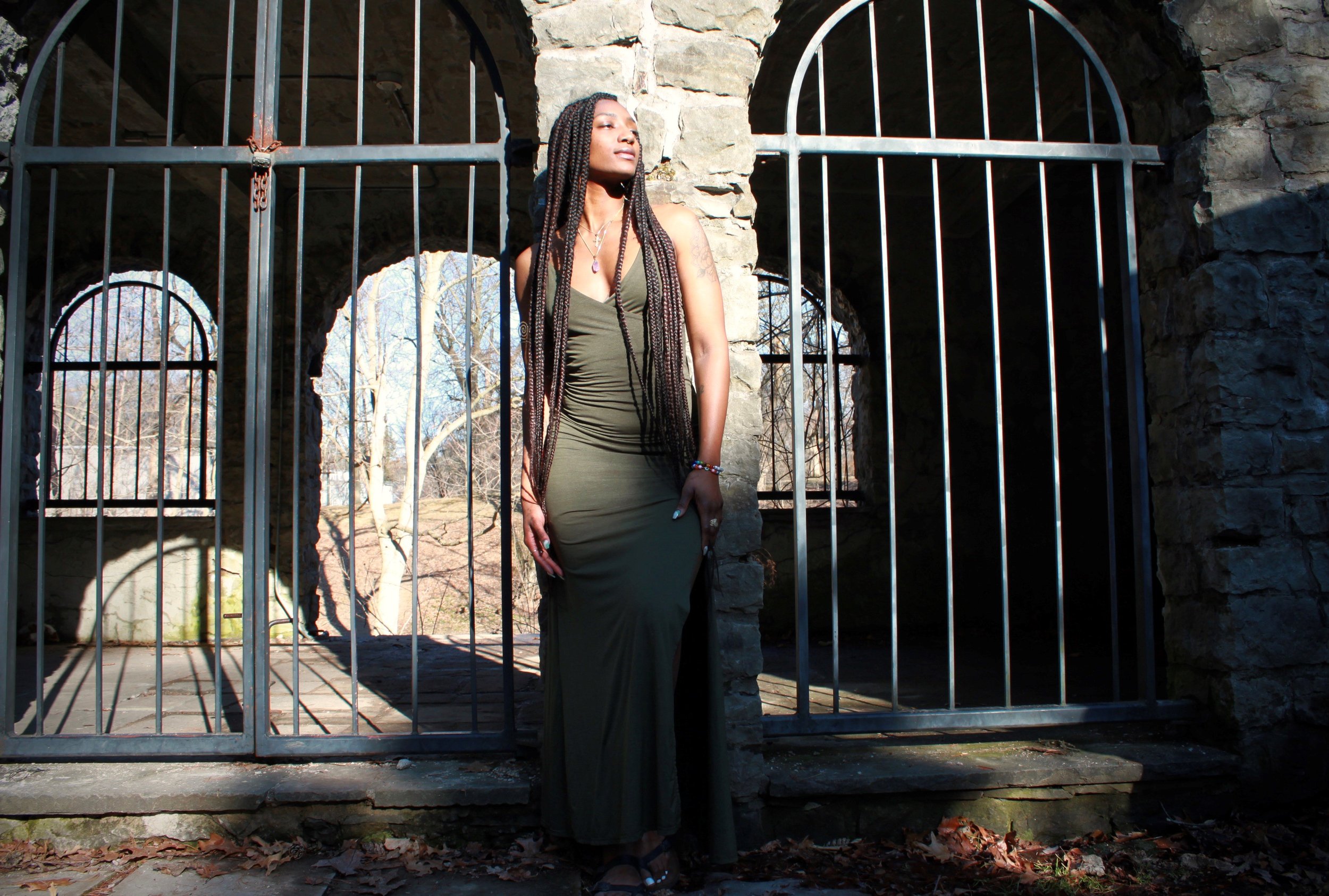SHelley Hughes
“I was forced to turn inward and tarot helped me navigate and put a name to the emotions I was feeling, providing revelations in the form of a clearer and different point of view over situations in my life, and helped me make my next decisions with more confidence and conviction.”
NAMI: How do you protect your mental health? What forms of self-care do you practice? What keeps you balanced?
SH: I protect my mental health by accepting people and situations for who and what they are, as overthinking "shoulds, coulds, and woulds" will lead me into a painful thought spiral. I practice daily gratitude in the forms of prayer, or journaling. I state daily affirmations, and keep some handy for any other situations I may find myself in with difficulty coping. A major key to protecting my mind is to remind myself that I am never alone- not in this moment, this feeling, this thought, this situation- so I don't have to take on the world all on my own. I call on my Spiritual team, along with friends and family to talk. I do my best to nourish my physical, spiritual, emotional, and financial needs to remain balanced because they all influence the other's wellbeing, and being a holistic healer- this is paramount for myself too. I eat well-balanced meals, I move my body in some way every day, and I seek financial freedom.
NAMI: What forms of mental health-related stigma have you observed or run into personally? How do you combat stigma?
SH: The mental health related stigma I've been exposed to is the myth that seeking therapy "makes you weak” or “crazy." Neither is the case whatsoever. I feel it is rather common in the Black household for family matters to be encouraged to be kept within the privacy of one's own home, due to fears of outsiders such as schools or CPS getting involved, and shining a light on concerns or areas of need for the child. This silencing and disenfranchisement of the child will most likely make the need for therapeutic services that much greater in their future. I combat these stigmas by understanding that therapy is for any and every body and letting that be known. When the people I'm surrounded by share tales of therapy, or that they're considering seeing a therapist, I greet that idea with a smile and often say "Congratulations on taking that step for yourself." It is my hope that it makes them more comfortable in their vulnerability and release any anxieties about it entirely.
NAMI: Do you feel like you have enough mental health support or is it challenging to find accessible and affordable treatment/therapy, etc.? Are there local resources you’ve used that you would recommend?
SH: I am blessed to have such a wonderful community that accepts me as I am with open arms, as I feel their good energy and listening ears are a well of support. I told myself this year that I would tend to my mental and physical well being at least once monthly and have been doing just that! I would greatly recommend Sierra Weiss for art therapy and Heidi Laplant for massage therapy. I also offer sound bowl meditations, coupled with yoga or other grounding activities at Luna Cooperative where accessibility for all members of the community is of the utmost importance.
NAMI: Your Instagram account is full of positive and empowering affirmations and wisdom. What fuels this for you? How do you maintain this positive energy during the bad/dark times?
SH: I take it all one day at a time, and one thing at a time. The most enlightening work can stem from periods of darkness, my own included. The words I share are often exactly what I needed to hear in that moment, because I again remember that I am not alone in this life experience. I go back to thinking "if this is helping me, who will I be able to help with this?" At times that vulnerability can be difficult to demonstrate, but knowing that it's not "for" me, but my messages extend beyond me helps. Showing up for others is how I can live my purpose. It reminds me that I have to shine my light no matter how shy, tired, or "bad" I may feel, because doing so will make me feel fulfilled, happier, and supported.
NAMI: You’re a tarot reader! What led you to this work? How do you feel tarot helps or impacts mental health and healing?
SH: I was diving deeper into spirituality, and had been inspired by readers on Instagram, most notably TheHoodHealer and Theresa Reed. While miles apart, I was able to feel seen, heard, and understood through their relatable messages. I felt called to get a tarot deck of my own (yes- you can buy your own). I kind of let it gather dust for a while and let doubt cast a shadow on my desire to get to know myself on a deeper level. Fast forward and the world is forced to pause with a pandemic, and I feel my own world beginning to crumble. I was forced to turn inward and tarot helped me navigate and put a name to the emotions I was feeling, providing revelations in the form of a clearer and different point of view over situations in my life, and helped me make my next decisions with more confidence and conviction.
SH: I thought "if this is helping me, who will I be able to help with this very tool?" ShellsTarot was born knowing that as I heal myself, I help heal others (and vice versa). Tarot helps people in much of the same way it has helped me. It can serve as the closure we can be so desperate to find with a loved one, the honest advice you need to hear from a trusted friend, provide the clarity you need to reflect on your past, confirm what you're feeling presently and to help plan for the future. That's always my goal, anyway.




